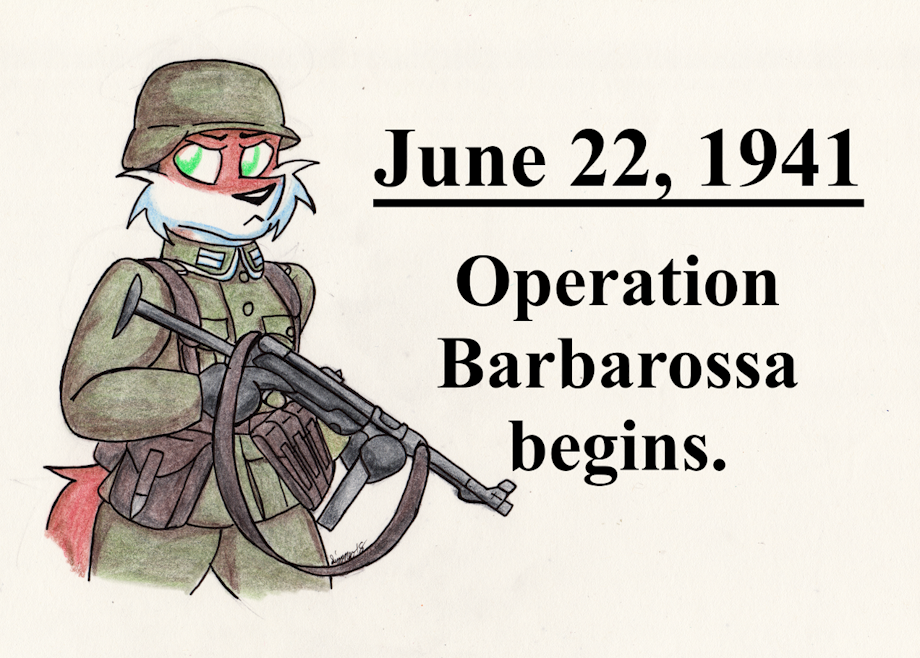On June 22, 1941, the German invasion of the Soviet Union, known as Operation Barbarossa, begins. Arising from growing differences and tensions between Nazi Germany and the Soviet Union and the Nazi belief in the concept of Lebensraum ("living space"), the invasion sought to render the Soviets a non-threat to Nazi ambitions and turn Soviet resources (including oil, agriculture, land, and even people in the form of forced labor) to the benefit of Nazi Germany. Initially, the German offensive was largely successful with German controlling large swaths of Soviet territory, including the important agricultural resources of Ukraine. However, the conquest of the USSR soon ground to a halt as Soviet defenses solidified and resistance grew, eventually stalling out just shy of Moscow.
Operation Barbarossa and its failure to knock the Soviet Union out of the war marked the eventual doom of Nazi Germany. It opened the another front upon which the Germans had to fight, specifically a front which featured some of the most brutal and hostile weather and pitted Nazi Germany against one of the most powerful enemies it could face. Its failure allowed the Soviet Union to regroup and go on the offensive. Following the entry of the United States into the war, Soviet manpower combined with US and British lend-lease aid. The stalemate was soon broken in 1943 following Soviet victories in such battles as Stalingrad and Kursk. By 1945, the Nazi regime had fallen from the combined might of the Soviet Union and the Western Allies.
Keywords
male
1,193,651,
fox
248,299,
vulpine
36,407,
germany
312,
this day in history
249,
tdih
244,
wwii
233,
world war two
86,
soviet union
65,
ussr
59,
eastern front
5,
june 22
1,
operation barbarossa
1
Details
Published:
6 years, 8 months ago
23 Jun 2018 02:26 CEST
Initial: f524c09e0bdb49bf19d82f3e23fa23a4
Full Size: bcd44768778eb8237fc5579677d65f08
Large: 1901f8035a4e739eee008945410986f9
Small: 20d5e2d8638d44fe035964e334283889
Stats
23 views
5 favorites
2 comments
